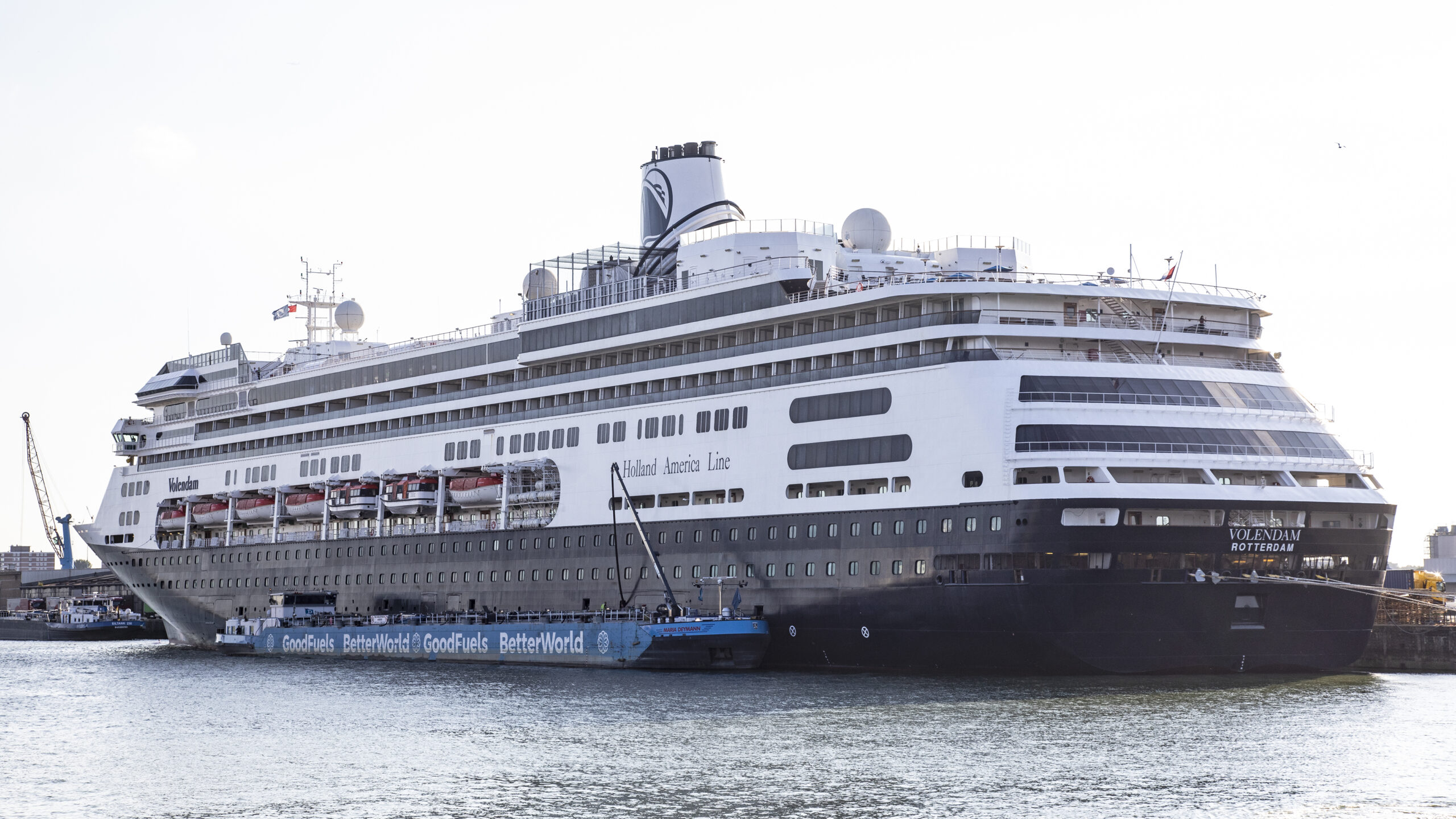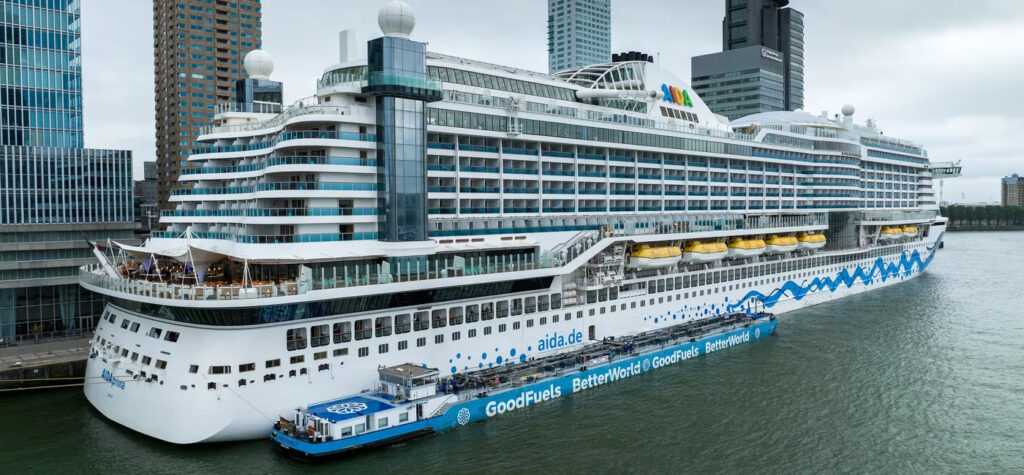Turning Organic Waste to Fuel: How Carnival Corporation is Testing Biofuels to Power Ships

We all know that food helps fuel our bodies, but did you know that food can also help fuel cruise ships? At Carnival Corporation, one of the many initiatives we’re exploring in our pursuit of net zero greenhouse gas (GHG) emissions by 2050 is trialing the use of sustainable biofuels to power ships across our fleet.
What are biofuels?
Biofuels are liquid fuels produced from renewable biological sources, including organic waste such as fats, oils, used cooking grease, and even food waste. As a low carbon intensity fuel, biofuels provide energy with minimal emissions during production and use. In recent years, cruise ships have been testing biofuels to replace powering ships with traditional fuel, which have provided an estimated reduction of 86% in lifecycle GHG emissions compared to marine gas oil (MGO). While the beauty of biofuels is that we can use them in our existing ship engines without modifications to the engine and immediately lower our environmental impact, they must first become available in abundance before they can be a viable commercial option.
Timeline for availability and scalability
To achieve the maritime industry’s decarbonization goals, an increasing number of vessels sailing and launching over the next five years will either use alternative fuels or will be able to incorporate zero-carbon fuels when they become available, according to the Cruise Lines International Association (CLIA).[1]
The good news is that ships can use many alternative fuels today with existing engines, which is already happening with positive results. Plus, new ships currently in production are being custom designed with even more alternative fuel capabilities. The challenge, however, is that significant supply chain constraints, including cost and availability, must first be resolved before viability is reached.
Regardless, we’re not standing idly by waiting for someone else to solve the problem. We’re actively participating with producers, companies, universities, research bodies, nongovernmental organizations, and more to address these challenges and help pave the way for the future viability of biofuel as a replacement fuel.
Paving the way with industry-leading trials
Across the industry, several pilot programs are underway to test and encourage broad production of sustainable fuels, with Carnival Corporation at the forefront of helping make those fuels a reality. From 2022 to date, we’ve successfully completed several industry-first pilots using biofuel, when available, on four ships in our global fleet – AIDAprima from our German line AIDA Cruises, Volendam and Rotterdam from our Holland America Line, and Carnival Magic from our namesake Carnival Cruise Line. The results have been very promising, and we don’t plan on stopping there.

“We are very encouraged by the results of our next-generation biofuel tests,” said Gus Antorcha, president of Holland America Line. “As part of our commitment to sustainability, we are always on the lookout for cutting-edge solutions to environmental challenges that will help us pursue our ambition of net zero GHG emissions from ship operations by 2050.”
Our biofuel use isn’t just happening at sea; we’re also developing unique local partnerships with the communities we visit to bring the trials to land. Last year in Juneau, Alaska, for instance, we worked with a local biofuel refiner to convert used cooking oil from on board our ships into fuel for our tour buses. Further, five of our six lodge and motorcoach shop locations burn our used vehicle and cooking fryer oil for heating.
While our work with biofuels is exciting, it is just one piece of the puzzle in our pursuit of net zero emissions. In order to achieve a sustainable future for cruising, we need a growing supply of biofuels and other low-carbon alternatives available at scale and at marketable prices. As we lead the way, we will continue to explore every option and innovation that will be part of the solution and help make our goals a reality.
For more information on the company’s long-term sustainability vision, visit www.carnivalsustainability.com.
###
[1] CLIA 2023 Global Cruise Industry Environmental Technologies and Practices Report



